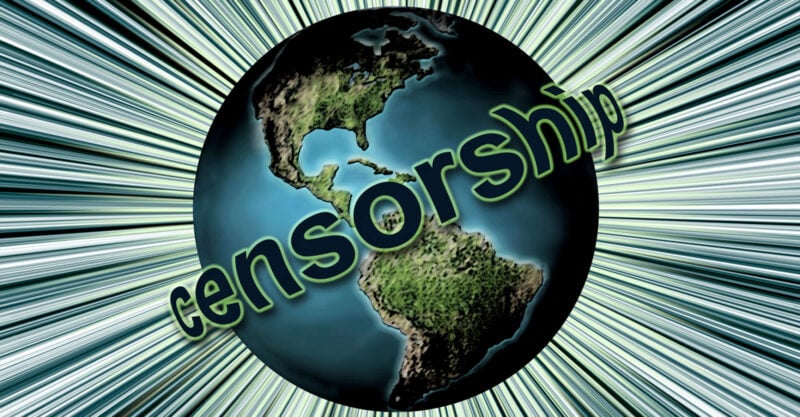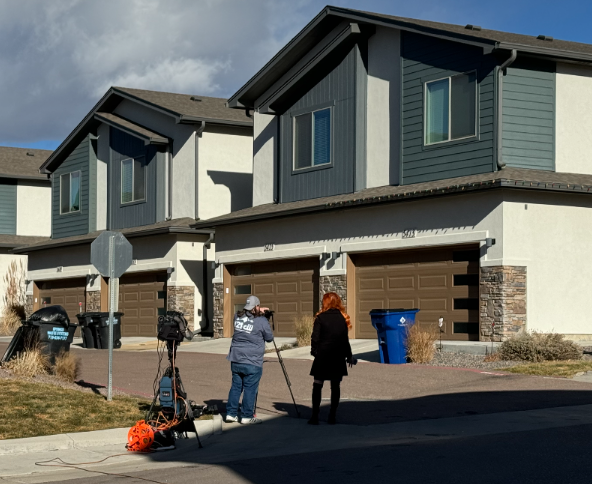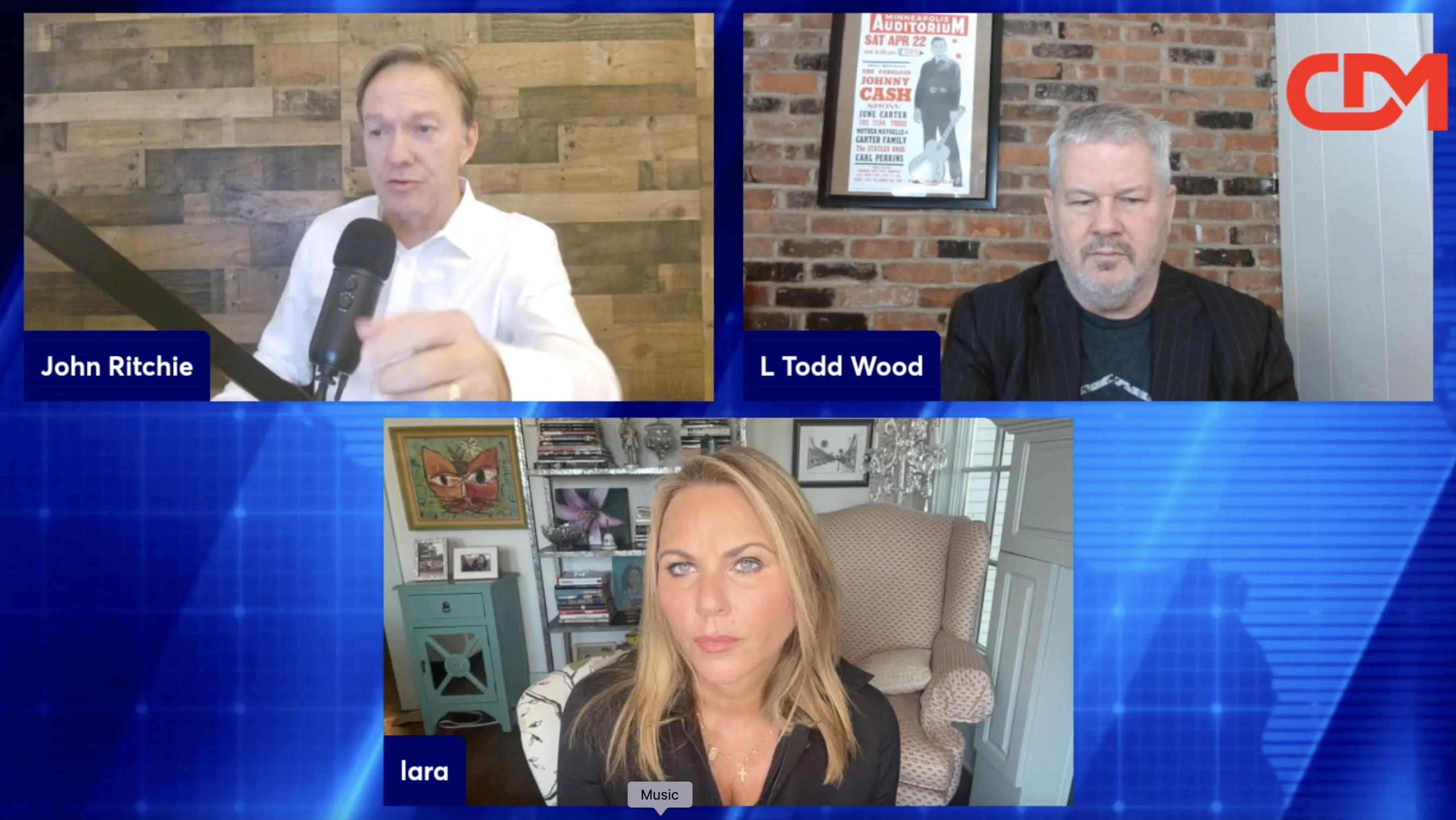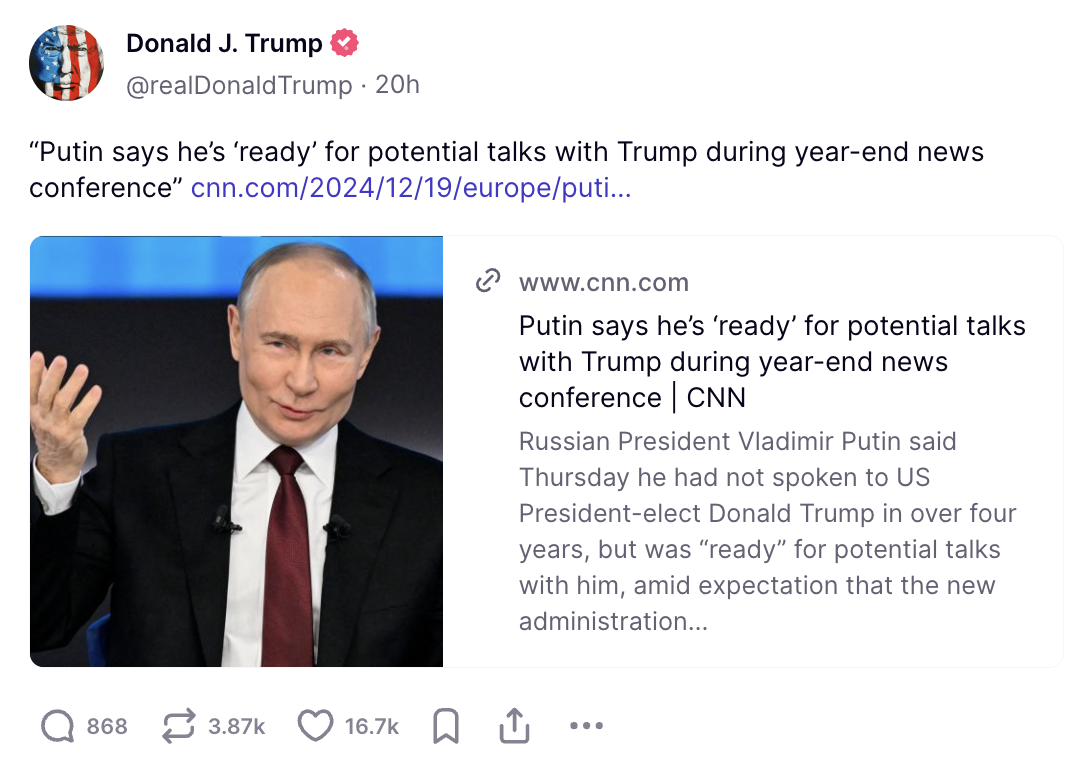Social media “climate misinformation” policies are targeting a wide range of people on both the Right and Left who dispute official narratives about climate “solutions” preferred by the government and its powerful corporate backers.

Please Follow us on Gab, Minds, Telegram, Rumble, Gab TV, GETTR, Truth Social, Twitter
In May, LinkedIn suspended the account of Republican presidential candidate Vivek Ramaswamy after he posted several climate-related campaign messages.
In one message, Ramaswamy asserted that “fossil fuels are a requirement for human prosperity,” and in another, he wrote that if adherents of the “climate religion” really cared about the climate “they’d be worried about, say, shifting oil production to places like the U.S. and China.”
“Big Tech election interference has begun,” Ramaswamy said.
LinkedIn (owned by Microsoft) backtracked under pressure and reinstated his account. But the episode highlighted the ways in which social media companies are expanding their “content moderation” of “climate misinformation” — with potentially far-reaching consequences across the political spectrum.
In another incursion into the presidential race, YouTube attached a “Context” note to a June 5 interview of Democratic presidential candidate Robert F. Kennedy Jr. in which he discussed his views about climate change with Canadian psychologist Jordan Peterson.
YouTube’s “Context” note included a definition of climate change from the United Nations (U.N.) and linked to a page on the U.N. website. The video is no longer available and now leads to a “Community Guidelines” warning.
In April, TikTok announced:
“We will begin to ramp up enforcement of a new climate change misinformation policy which removes climate change misinformation that undermines well-established scientific consensus, such as content denying the existence of climate change or the factors that contribute to it.”
TikTok’s policy is similar Facebook’s, which over the last several years has censored prominent climate contrarians (often pejoratively referred to as “deniers”) Michael Shellenberger and Bjorn Lomborg.
Like Ramaswamy, Shellenberger and Lomborg disputed aspects of the “scientific consensus” on climate change and argued for the continued use of fossil fuels and the expansion of nuclear energy.
Lomborg has argued that “partisan ‘fact-checking’ pushes alarmist climate narratives.” Yet there are counterexamples of people being censored on social media because they are raising the alarm about climate change and environmental degradation more loudly than representatives of the “scientific consensus.”
Social media companies, under pressure from government authorities, have been applying their climate misinformation policies not only against people who express doubt about climate change itself but also against a wide range of people who question the climate “solutions” promoted by the government and its powerful corporate backers.
This includes many people who do not fall into the “denier” camp at all.
The large corporations, government entities and political interests that have claimed the power to censor social media are using this power to manipulate the climate debate toward their preferred “solutions” and to denigrate alternative perspectives and approaches.
From censoring ‘denial’ to censoring debate about ‘solutions’
“Now it’s not so much denying the problem,” President Biden’s first National Climate Advisor Gina McCarthy said in an interview last year with Axios for its virtual event, “The Infodemic Age.” “What they [spreaders of alleged misinformation] are really targeting is our inability to accelerate the answers to climate. The technologies we need moving forward. That is equally dangerous to denial because we have to move fast.”
“We have answers, we have solutions,” McCarthy said, referring primarily to solar energy and wind energy. “The question is how quickly we can accelerate them. Clean energy is the solution.”
“We have to get tighter” with the enforcement of climate misinformation policy against people who cast doubt on these technologies and “solutions,” she said. “We need the tech companies to really jump in.”
To “get tighter,” the government has been working with tech companies and organizations in the “Censorship-Industrial Complex” that act as third-party “fact-checkers” for social media — TikTok calls them “Safety partners.”
Together, they have been shifting their focus from censorship of outright climate “denial” to censorship of debate and discussion about clean energy technologies and other climate “solutions,” as McCarthy described.
The U.N. climate webpage that YouTube attached to the Peterson-Kennedy interview in its “Community” note, for example, says, “We face a huge challenge but already know many solutions.”
The fact is, however, that many people from various points of view have problems with the mainstream “consensus” about clean energy and other touted climate “solutions.” There is a great deal of controversy about whether these “solutions” actually work — and who benefits from them and who bears the costs.
Although Big Oil has undoubtedly used its profits to shape the climate debate, it’s not just the fossil fuel companies and recipients of their “dark money” who are critical of mainstream climate “solutions,” as McCarthy and other proponents of censorship contend.
Censoring a wide range of critics, including environmentalists
A wide range of people are now getting caught in the digital net of “climate misinformation” censorship, including some environmentalists.
The following groups are among those experiencing social media censorship due to their criticism of officially sanctioned climate “solutions” and because of their advocacy for alternative approaches to climate and environmental issues.
- Local citizens, conservationists and environmental activists opposed to ‘clean’ energy projects.
The massive $3 trillion dollar push for solar and wind energy across the U.S. is causing a backlash in some communities where local citizens are unhappy with the immediate environmental impacts.
The backlash against clean energy also is growing among some who say these giant industrial development projects are being built to the detriment of biodiversity, wildlife habitat and healthy ecosystems.
In December 2022, YouTube “permanently” deleted — without warning or notice of suspension — the channel of the group Protect Thacker Pass, which opposes the development of a large lithium mine in Nevada. Three days later YouTube restored the channel, without explanation.
Small conservation groups like Basin & Range Watch, a nonprofit that seeks to protect the deserts of Nevada and California from industrial development, including wind and solar, reported that they were accused of being spreaders of “misinformation” by proponents of these energy projects.
Citizens and local environmental activists who oppose offshore wind energy development in the New York-New Jersey area due to the potential impacts on whales and the ocean environment have been subjected to online censorship by Facebook and Instagram.
This censorship was coordinated by the third-party “fact-checker” PolitiFact, operated by The Poynter Institute — one of the “Top 50” members of the Censorship-Industrial Complex.
Media stories have used a broad brush to smear advocacy groups concerned about the effects of offshore wind development on whales and the marine environment, accusing them of being agents of fossil fuel “dark money.”
Although some local organizations do appear to have accepted funding from the fossil fuel industry, the broad grassroots movement to protect the coastal environment from industrial development cannot be accurately described as a product of oil-and-gas “dark money.”
The CEO of one offshore wind company, Atlantic Shores, wrote an op-ed accusing groups opposed to his projects of spreading “misinformation” about “the most viable solution we have” for climate change. He refrained from accusing his opponents of being funded by fossil fuel “dark money.” Atlantic Shores is 50% owned by oil giant Shell.
- ‘Doomers’ and environmentalists who advocate for systemic change.
A subset of climate activists believes that no officially sanctioned “solutions” are capable of stopping climate change or bringing an end to environmental degradation. These people are pejoratively referred to as “Doomers” (some of them prefer the tongue-in-cheek label, “Doomsters”).
In recent years, the press, climate scientists and mainstream climate activists have taken to bashing “Doomers” with the same gust they attack “Deniers.” A typical headline in The Washington Post reads, “Why climate ‘doomers’ are replacing climate ‘deniers.’”
In 2020, the Facebook group “Positive Deep Adaptation” received a warning about an article it shared, written by the award-winning novelist Jonathan Franzen in the New Yorker: “What if We Stopped Pretending? The climate apocalypse is coming. To prepare for it, we need to admit that we can’t prevent it.”
Facebook’s warning relied on a “fact-check” by the site, Climate Feedback.
And in April of this year, Facebook censored a post by Jem Bendell, a professor of sustainability at the University of Cumbria in Carlisle, England, who had attempted to share an interview British GQ conducted with him.
In the interview, Bendell discussed his view that mainstream climate policies are simply not working, and his belief that catastrophic disruptions to industrial consumer societies will occur due to climate change combined with other environmental, economic and social factors.
Facebook hid the post, with a message that said, “No one can see your post. We have these standards because we want everyone to feel safe.”
Similarly, in May, TikTok took down a video by “climate corruption” journalist Rachel Donald, labeling it “misinformation.” In the video, Donald, who writes the climate newsletter Planet Critical, said, “It’s the economy. It’s the economy driving the climate crisis. It’s how we’ve organized ourselves. It’s exploitation and extractivism and all this kind of stuff.”
TikTok did not offer a specific reason for labeling the video “misinformation.” But the video’s message — “It’s the economy driving the climate crisis” — conflicts with the U.S. government narratives about “green” growth.
Biden’s “climate solutions,” McCarthy said in her Axios interview, are “not just to save the planet, but to strengthen our economy. … Growing our economy today … that’s what our domestic climate action is all focused on.”
- Farmers.
When it comes to food and agriculture, the climate movement is dominated by “ecomodernists” who believe genetically modified plants, factory-made foods, synthetic meats and other industrial food technologies are “solutions” to climate change.
A smaller contingent of environmentalists believe we need small-scale farms using regenerative and agroecological methods, instead of more industrial food technologies. This contingent, and the populist small-farmer movement they are aligned with, have come under the scrutiny of the “climate misinformation” censors.
Protests by Dutch farmers galvanized worldwide opposition to onerous environmental policies that may end in the expropriation of thousands of farmers’ land. Dutch farmers received the support of some prominent ecological activists, like Dr. Vandana Shiva, who believe in the small-farm approach.
Yet the popular media, famous environmentalists like George Monbiot, and “fact-checking” organizations portray the Dutch farmer protests as a “far-right” movement that spreads conspiracy theories and misinformation.
Small farmers around the world who dispute the notion that their pasture-raised, grass-fed cattle are a significant cause of climate change have been censored by Facebook.
In one example, farmers posted memes stating that “cows are not the problem” compared to the private-jet lifestyles of billionaire elites like Bill Gates. Facebook attached a “fact-check” to these memes: “Debunked: Yes, cows are a ‘problem’ when it comes to cutting greenhouse-gas emissions.”
This example illustrates how the process of “fact-checking” a subjective political debate — are cows or private jets “the problem”? — benefits the elites who fund the “fact-checking” organizations.
“Fact-checkers” give credence to ecomodernist “solutions” pushed by billionaires like Gates, who funds several of the biggest organizations in the Censorship-Industrial Complex. Replacing cattle with synthetic beef and industrially produced “plant-based” foods — lines of business Gates is invested in — are treated as promising “solutions.”
Populist counter proposals — eliminating private jets or giving small farmers resources to transition to more ecologically friendly methods — are not taken seriously by the “fact-checkers.”
This is so, even though a compelling argument can be made that small farmers are better able than large industrial producers to feed the world using regenerative, agroecological methods.
The “fact-checkers” make no distinction between industrially raised cattle and those raised by small farmers using more holistic grazing methods. All are lumped together, even though this makes little ecological sense.
As Shiva observed:
“In order to erase the last remaining small farmers, corporate-sponsored narratives are now pushing for … dualistic narratives around plant versus animal, instead of addressing the larger crisis of how current industrial practices are destroying Earth’s ecosystems.”
Censorship of debate prevents alternative approaches from emerging
The power to censor, which was originally justified as being necessary to silence those who “denied” the existence of climate change, is increasingly being used to silence people who disagree with official climate “solutions.”
As long as disagreement is labeled “misinformation,” democratic debate is impossible.
Political debates are inherently subjective to a certain extent. Should we attempt to replace oil and gas with clean energy across the entire economy? Is “green growth” possible? How do we ensure that climate policies respect civil liberties? Is the future of food to be found on big industrial farms or small family farms? Which is a higher-priority problem — grass-fed cows or private jets?
These questions involve the weighing of pros and cons, the prioritizing of values and decisions about who will bear the costs and burdens. They are not simply questions of science or math.
Yet the social media “fact-checkers” step into these subjective debates with the pretense of objectivity, to steer the conversation toward “solutions” preferred by the big corporations and billionaires who fund them.
For every hot-button climate “solution,” the Censorship-Industrial Complex churns out “fact-checks” that are biased in favor of their funders. Biased claims can often be found on the other side of these debates, too.
The only way to make sense of these competing claims is through an open democratic process.
The censorship battle is not about “deniers” vs. “science, as many seem to believe. The conflict is primarily about who gets to decide on the “solutions”: citizens engaged in free and open discussion, or the political and economic forces that have claimed the power to censor.
In democratic societies, “solutions” are supposed to be up for debate — increasingly, they are not.
The views and opinions expressed in this article are those of the authors and do not necessarily reflect the views of Children's Health Defense.
W. Aaron Vandiver is a writer, former litigator and wildlife conservationist. He is the author of the novel, "Under a Poacher’s Moon."
“© [Article Date] Children’s Health Defense, Inc. This work is reproduced and distributed with the permission of Children’s Health Defense, Inc. Want to learn more from Children’s Health Defense? Sign up for free news and updates from Robert F. Kennedy, Jr. and the Children’s Health Defense. Your donation will help to support us in our efforts.

























Tik Tok (China) of course fully supports the green agenda in the U.S. They know it will destroy the U.S. economy.